The search for the best HRIS software for your small business can be overwhelming. Small businesses have different HR software needs than large businesses. For example, a small business will often have fewer employees performing the same essential functions and HR processes that are needed by businesses of any size.
The best HR software solution should accommodate and reflect the unique needs of a small business. It is also important to look for certain HR features and functionalities that will help rather than hinder your small business.
In this article, we will help you navigate the process of selecting the right HR software for your small business and help you determine which HRIS solution fits your small business needs, whether that’s payroll software, an applicant tracking system, or a full HR system. We base our HRIS recommendations on customer support, pricing, automation, HR features, mobile app accessibility, workflows, intuitive user interfaces, and more.
Matchr’s Top HRIS Software Picks
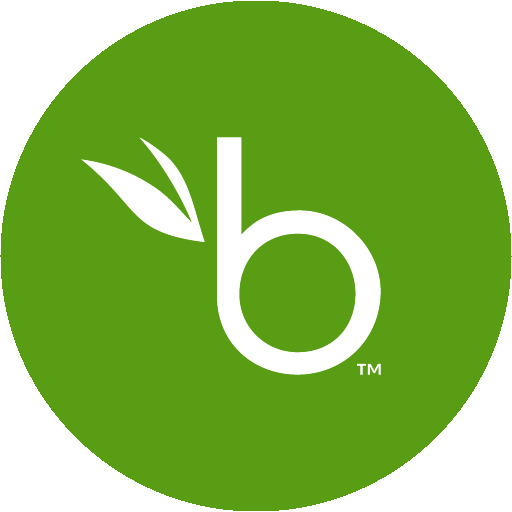
BambooHR Software
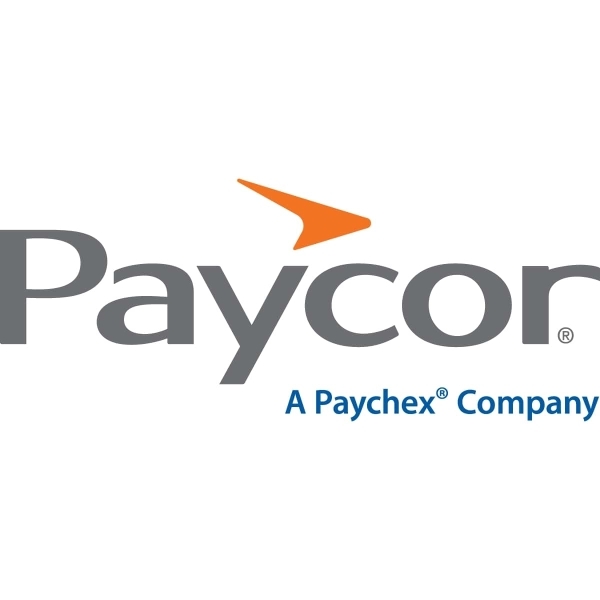
Paycor HCM
Match’s Top 11 Best HR Software Recommendations for Small Businesses

1) Paycor
Paycor is a cloud-based HRIS solution specializing in HR software for small to medium-sized businesses. Paycor’s HR software consists of intuitive cloud-based modules that can be accessed from anywhere. With both mobile and desktop solutions, Paycor HRIS covers all of your HR management needs.
Paycor Highlights:
- Candidate tracking
- Interview management
- Compensation management
- Recruiting/applicant tracking system
- Time off management

2) BambooHR
BambooHR is a modern-day cloud-based HRIS solution that streamlines and centralizes employee information into a single database. Founded in 2008, BambooHR is a tech-focused HR software solution for both small and medium-sized businesses. With an easy-to-use interface, BambooHR is a great option for your small business HR software solution.
BambooHR Highlights:
- All-in-one mobile app, tablet, and desktop solution
- Intuitive implementation and customization
- No long-term contracts
- Payroll integration with multiple payroll software providers such as ADP
- Available in multiple languages
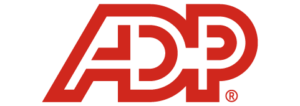
3) Run by ADP
ADP is one of the world’s oldest and most recognized HR and payroll service providers. ADP created and launched Run, an HR software solution designed specifically for small businesses. Run by ADP is designed to meet the unique needs of companies with less than 50 employees. With Run, you’ll have the support and resources of ADP with an HR system designed for your small business needs.
Run by ADP Highlights:
- Run payroll from anywhere in just minutes
- Integrates with most accounting software such as Quickbooks
- Add ADP services seamlessly as you grow
- Recruiting/applicant tracking system
- Payroll management
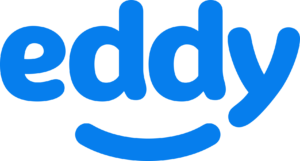
4) Eddy
Eddy is an all-in-one HR software suite designed specifically for small businesses. The company is employee-centric and believes that employees are a business’s most important assets. Their intuitive and seamless HRIS solution is a small business owner’s dream.
Eddy Highlights:
- Cloud-based document storage and employee records organization
- Customizable PTO plans
- Employee onboarding completed before a new hire’s first day
- Time tracking linked to employee accounts
- Employee benefits administration

5) SentricHR
SentricHR makes it easy for your small business to customize your HR software to your organization’s specific needs. Sentric provides a user-friendly, intuitive HR system for all your HR and payroll software needs. With Sentric, you can automate both HR processes and payroll processes without ignoring the human element.
SentricHR Highlights:
- ACA tools to assist with compliance woes
- All-in-one HR software and payroll solution ideal for small and medium-sized businesses
- Includes standard and highly configurable reporting
- Paperless document management solution without compromising compliance
- Robust recruitment and applicant tracking features

6) UGK
UKG Ready is a flexible HR solution that provides a connected people experience to easily manage the entire employee journey. Specializing in HR software for small to medium businesses, UGK combines HR, talent management, and payroll processes into a single HR software solution that increases efficiency while maintaining compliance.
UGK Highlights:
- 70 Years of experience in the HR software space
- Ability to add complementary apps such as E-verify
- Ability to interface with third-party HR software
- Core HR features
- Applicant tracking system
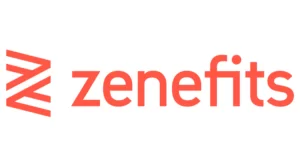
7) Zenefits
Zenefits is a comprehensive, web-based HR software system that manages all HR processes, including payroll processes, time tracking, and employee benefits from a single online dashboard. The Zenefits HRIS solution is great for any small business that is looking for comprehensive automation and compliance in their HR software.
Zenefits Highlights:
- All-in-one HR software adaptable to any size business
- Supports web-based, mobile app, and desktop systems
- Easily configurable and customizable
- Employee self-service portal
- Applicant tracking system

8) Rippling
Rippling’s HRIS allows its users to effortlessly manage their payroll processes, employee benefits, devices, and mobile apps all in one place. As a provider of small to medium HR software, their powerful set of HR tools is ideal for companies with 1-500 employees. In addition, Rippling offers an employee self-service portal and a mobile app that allows employees to correct errors that may occur with their information.
Rippling Highlights:
- Automation of admin work
- Employee mobile app
- Customizable reports
- Integration with over 500 apps
- Simplified PTO that syncs with payroll software
- Self-service portal for easier management of employee data

9) Namely
If your company is still small but growing, Namely may be a great HRIS solution for you. Namely specializes in working with mid-sized companies. They offer an intuitive HR software solution that your workforce will enjoy using. Their software can help save you time while reducing the risk of data entry errors with their centralized data storage.
Namely Highlights:
- Intuitive and user-friendly
- First-class service and customer support
- Open API and delivered software integrations
- Unified HR and payroll employee data
- Personal implementation and training

10) APS
APS is an all-in-one payroll and HR platform designed to make workforce management easier. Because the APS software is designed to scale with your organization and is used in a variety of industries, they are able to bring enterprise-level service to SMBs (small- and medium-sized companies). APS is a full employee lifecycle solution from application and employee onboarding to retirement and offboarding, which allows them to assist with employee management in a myriad of ways.
APS Highlights:
- Versatile, scalable solutions
- Low cost of ownership
- Highly personalized service
- Top-of-the-line security controls
- Comprehensive ACA compliance assistance
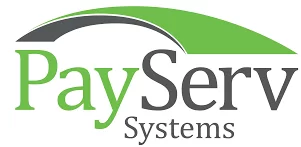
11) WorkforceTHRIVE by PayServ
WorkforceTHRIVE is ideal for small- to medium-sized companies looking for automation and to streamline electronic HR management to improve their existing HR processes. Their small business HR software operates from a single, cloud-based HRIS database and as a result helps eliminate errors and maintain compliance.
APS Highlights:
- True single database for completely seamless end-to-end HCM
- Simple yet powerful reporting tools
- 24/7/365 emergency customer support outside of extended support hours
- Enhanced client control with direct access to configuration tools
- Net promoter score of over 95
Why SMBs Need HR Software
Human resource software plays an important role not only for HR professionals in larger businesses but also for small business owners and managers who don’t have the benefit of HR teams dedicated to managing HR processes. Because investing in HR software represents a cost, many small businesses manage their HR functions via Excel or another free software system. However, this can end up hindering HR overall. HR software helps to reduce the risk of errors by syncing data and eliminating the need for repeated data entry.
Plus, there are management features that can help reduce the time spent on HR processes and scale up as the small business grows. Human resource management can be difficult, with a lot of moving pieces, and using software can mean both scalability and real-time updates so employee data is available to staff right away.
Types of HR Management Software for SMBs
Small businesses have unique needs that are different from those of larger businesses, but those needs still tend to fall into the same categories and can be solved by the same types of HR software solutions. Some small businesses may prefer to keep their HR software platforms separate, but an HRIS can help to keep everything all in one place because it can function as an all-in-one HR solution that provides all of the HR features your small business might need. An HRIS or HRMS can help to reduce the amount of time it takes to perform HR tasks as well as set up a small business for future growth.
Time and Attendance Software
Many small businesses never move beyond tracking employee timesheets in Excel and writing paper checks. Using an HRIS in your small business can help reduce your risk of stiff penalties if regulations are breached. In addition, a good HRIS solution may also reduce the risk of bad blood between employer and employee through mistakes. Implementing HR software that saves time can help to avoid these types of issues.
Additionally, having time and attendance kept in a smart system can allow you to use attendance tracking and timekeeping data to learn more about your small business and to spot trends. Using an HRIS to track time and attendance can also make it much easier for your business to grow. In many cases, time and attendance software also includes features that help manage PTO and time-off management, including approvals, time-off requests, and a self-service portal so employees can keep track of their own PTO.
Performance Management Software
All businesses need some way to manage employee performance. This type of software can help you manage feedback for employees, manage employee performance reviews, review score templates, and more. Employee management is made much easier through HR tools that can help managers track employee progress and improvement over time in an intuitive, user-friendly way. Such management tools can also help employees because they can more easily keep track of evaluations in a timely fashion and access performance reviews at any time.
Payroll Software for SMBs
Smaller businesses have different payroll needs than larger ones. For example, some may outsource their payroll instead of doing it in-house. Others may have more hourly employees and need payroll processes that sync via automation with payroll software so that payroll processing can be done seamlessly. Payroll software may also include features pertaining to health insurance and benefits or may sync to third-party software that does. Payroll taxes and tax filing are also generally made easier by using payroll software.
Applicant Tracking System
An applicant tracking system typically manages the employee lifecycle from onboarding to offboarding, This type of software also offers job postings on social media and job boards in order to find top talent that is the best fit for your small business. Nowadays, many potential new hires search for work on social media, so having an ATS that can post job openings there can be a good way for a small business to find the right staff.
HRIS
An HRIS is a human resource information system that is designed to manage HR tasks and processes and make the management of a company’s core HR goals and strategies much easier. While many HRIS vendors target larger companies, there are many that can be used for small businesses or are even designed specifically with the needs of small businesses in mind, including scalability. An all-in-one solution like an HRIS can be especially helpful for small businesses that don’t have the staff to manage multiple disparate systems. Instead, by investing in just one HR software solution, small business owners and managers can streamline all of their HR tasks.
HRMS
Another all-in-one HR software system is the HRMS, which stands for human resources management system. In many cases, the HR features and tools provided by an HRMS are very similar to those offered by an HRIS. However, the focus of an HRMS is more on HR management and therefore may offer more human resource management tools than an HRIS, ranging from performance management to learning management.
Best HR Features for Small Businesses
Once you have decided to invest in HR software to help manage your HR processes and tasks, it’s important to make checklists for what features you absolutely must have and which features would be nice to have. Any software you consider should include everything on the first checklist and the second can help you to narrow down your search. There are a lot of HR software options out there and using only a list of must-haves may result in too many options.
Mobile App Accessibility
Mobile accessibility is quickly becoming the norm and can provide a serious advantage for small businesses. Managers and employees in a small business often have to wear many hats, so HR software with mobile accessibility can make it easy to view important business data while on the go or at the earliest convenience. Enabling employees to view things like schedules, compensation information, and tax documents on a mobile device can save time and frustration all around.
Employee Benefits Enrollment and Management
Benefit requirements and options can be tricky for small businesses to figure out and can take up work time trying to explain to qualified employees. HRIS with benefits enrollment options can make the whole process easier to navigate for employees and can take almost all of the stress off of employers. Employees can also review and select benefits at their leisure on their own time, relieving pressure and saving the company time.
In addition to empowering employees to work through the benefits process on their own, using an HRIS for benefits management can make compliance easier. Most HR software can compile reporting information and even send the information to the appropriate places with a few clicks. It can also update information regularly, so employers can always stay up to date with the most current laws without doing tons of research.
Employee Training and Development
It may not suit every small business to add training and development options to the HRIS, but it can help small businesses that are working on growing take the next step. Having training and development options easily accessible through a mobile platform can give employees the push and the opportunity that they need to grow within the company. When all employees have these options, it can spur motivation and help the business to maximize productivity, driving growth.
Employee Data Management
While small businesses may not need an HRIS to handle the same volume of data as large businesses, having an HRIS can provide certain tangible benefits. As a result, it is important to make sure that the HRIS you choose can be scaled down to meet the needs of the business, no more and no less. Having unnecessary features can affect functionality and adoption rates.
Integrations With Other HR Software
If you already have software that you’re using, any new system should ideally integrate with it to sync employee data and other information across platforms. The more manual data entry is required, the more potential there is for human error to result in costly mistakes. Syncing information from one platform to another can help to reduce or even eliminate this possibility, ensuring accuracy and compliance.
Employee Self-Service Portal
Small business owners and managers have enough on their plates already without having to manage employee information on top of that. A self-service portal is an excellent way for employees to manage their own data so that it’s not only more accurate in real time but owners and managers don’t have to use up their own valuable time in making updates.
User-Friendliness
It’s important for a small business’ HR software to be as user-friendly and intuitive as possible. That way, owners and managers can start to use the software right away, without needing extensive training to get started. Small businesses also benefit from user-friendliness when there’s a self-service portal for employees. They don’t have to spend a lot of time training employees on how to use the portal.
Robust Customer Support
Excellent customer support is vital for small businesses. If you need assistance with your HR software, it should be easy to contact the vendor with questions and to report problems. Online learning databases can also be useful when it comes to learning how to use new software.
Payroll Integration
Some HR software may be able to handle all of the payroll processes for your small business, but if your HR software doesn’t, it should integrate with software that does. Running payroll is a vital HR function for any business of any size and your HR system should be set up to manage that.
Time Tracking, Attendance, PTO Management, and Time-Off Requests
Small businesses may be more likely to employ hourly staff instead of salaried. This means that time-tracking and attendance features are essential HR features for businesses of this size. They’ll also need a convenient way to handle time-off requests and keep track of PTO.
Recruitment and Applicant Tracking
A company’s most important asset is its employees. Without them, the business cannot run. Therefore, it’s essential for your HR software to include recruitment and applicant tracking features. These will help you find the top talent that will help your small business grow to the next level. Plus, applicant tracking systems also typically include features for interviewing, onboarding, training, and offboarding so your employees are managed throughout the entire employee lifecycle.
Performance Management
Performance management features are good for both employees and managers. Managers can track employee engagement and performance through performance management tools in HR software and help employees improve. Employees can reference their performance reviews any time with such software and can get feedback more frequently than just at an annual review.
Compliance Management
Your HR software should help you to stay compliant with changing regulations and laws, no matter where your business is located. This can help your payroll and taxes to be accurate and avoid costly errors that could impact your employees and your business.
Scalability
The nature of a small business is that the company is likely to grow. Any HR software that you use should grow with you so that you don’t have to change software platforms. There are many HRIS options that can work for any size of business, from small all the way up to enterprise-level businesses. Other software systems allow you to purchase a smaller size package for a small business and then add on as the business grows.
Reporting and Analytics
Reporting and analytics are vital for the success of your business. Reports can provide valuable insights into the performance of your company and employees and areas of improvement. Many HR systems will provide actionable insights so you can more easily see what needs to be fixed.
How To Find The Right HR Software For a Small Business
There are a lot of HR systems out there. This can make it difficult to find the right one. Fortunately, there are some strategies you can use to narrow down the search.
- Make two checklists: One list should contain your absolute must-haves. The other should be features that would be nice to have. Any potential software should contain all of the first list and the second list can be used to help narrow down your software shortlist.
- Determine your budget: You can eliminate any software whose pricing doesn’t fit within your budget, although keep in mind that you may get what you pay for.
- Use an online software match tool: Matchr.com offers a free software match tool. All you have to do is input information about your business and what you’re looking for and we’ll provide a list of suitable HR software options for you.
- Read online reviews: It’s a good idea to see what others’ experiences have been with the software you’re considering. If a software vendor gets a lot of bad reviews, read what the complaints are about so you go into any choice fully informed. Don’t forget to check out good reviews, too, to see what a software system does well.
- Ask around: If you know others in the same situation, ask them which software they’ve used. They can tell you what they did and didn’t like about it and may even be able to show you some of the functionality.
- Create a shortlist: The above steps should help you narrow down your software options to create a shortlist of top contenders. These are the systems you’ll need to explore in more detail before making a final decision.
- Ask vendors for demos: Don’t be afraid to ask vendors to demonstrate their software. This should be a free option and is an excellent opportunity to see the software in use. Make sure to ask as many questions as you need to or even ask for a second demonstration.
- Make a final decision: Take the time you need to make the final decision. It can be tempting to rush because you want the benefits of the software sooner rather than later, but it’s more important to choose the right software. Making a hasty decision could mean that you’re looking for new software not long after implementation because the choice wasn’t quite the right one.
Looking for the best HRIS solutions for a specific industry?












